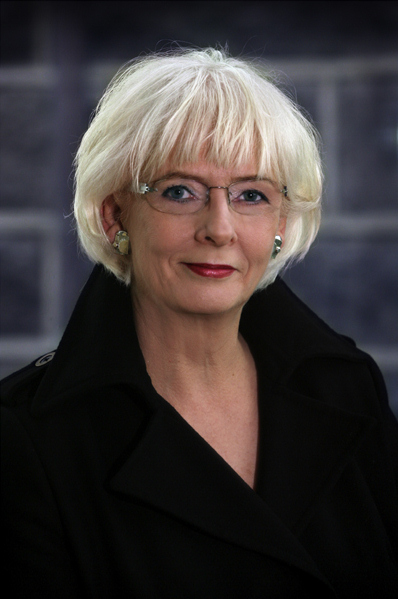Bank Crisis First-In Will Be First-Out
Iceland has been called the Island of the Sagas, and recently there has been no shortage of sagas.
When the volcanic eruption started in Eyjafjallajokull last April, severely disrupting international air traffic, the world's attention turned to Iceland. It was the second time in only 18 months that our nation made the front pages of the international press, the first being the collapse of the private banking system during the global credit crisis of October 2008.
While obviously very different in nature, both events demonstrate one country can have a direct impact on others. In a globalized world, we are all in the same boat.
It has been more than 60 years since ashes from an Icelandic volcano caused difficulties in Europe. This recent eruption of one of Europe's volcanoes has highlighted a certain lack of international coordination in dealing with this kind of situation. The eruption in Eyjafjallajokull glacier is a reminder that increased efforts and cooperation are needed internationally in the field of volcanic research.
Humans are powerless before the elements, though we can try to be prepared when we live alongside the forces of nature.
But when plunged into an international financial crisis, we can only blame ourselves. Privatized banks in Iceland made use of cheap international loans to grow out of proportion to the small Icelandic economy and they collapsed when the financial crisis began to weigh heavily in our part of the world.
Enormous Cost
The cost of the crisis became enormous for Icelanders, domestic and foreign savers, and foreign creditors.
Developments after the collapse of the Icelandic banking system in October 2008 show the problems aren't limited to Iceland. Banks were run irresponsibly in many countries. The financial crisis is now shaking many parts of Europe, while Iceland -- being among the very first to experience the weight of it -- may have come further in dealing with the consequences than many other countries.
Iceland has gone through a trial of fire. We had to deal with a collapse of our banking system and our currency simultaneously, a man-made economic disaster, historically unprecedented. Our task in Iceland in the last 18 months has been simple: to find out what happened, to clean up the mess and make sure that such an economic disaster never strikes again.
Disturbing Report
On all three, Iceland has made substantial progress. Recently, a special investigative committee delivered a report explaining the events that led to the financial crisis. The conclusions were very disturbing and showed clearly that the greed and excess of financiers, the lack of regulation and active surveillance, and the shortcomings of the international financial system were to blame. The report was a milestone for reconstruction and is a foundation for reconciliation.
At the same time, the justice system has been reinforced. A special prosecutor has the task to investigate and prosecute those suspected of breaking the law in the lead-up to the financial crisis. The results of this work are now beginning to materialize, and no effort will be spared to ensure that justice is done under the rule of law.
My government has always focused on making the necessary changes to legislation and procedures to ensure the mistakes of the past aren't repeated. This task is progressing well. The banking system has been restructured with a revised legislative framework. The surveillance of the financial system has been enhanced, making for a sounder basis and more transparency.
Road to Recovery
The road to full economic recovery is long and the journey will require further sacrifices as we bring the budget back into balance by 2013. Nonetheless, the economic fundamentals are strong as our real assets remain intact despite the financial turmoil. The economic contraction in 2009 wasn't as severe as initially feared, and less severe than in a number of our partner countries in Europe.
Economic growth is expected to resume later this year. Unemployment reached 7.6 percent in the first three months of the year. Even though unemployment is higher than Iceland has ever experienced, the registered jobless figure is no longer increasing. The central bank has also been able to reduce interest rates significantly following increased currency stability and decelerating inflation. All economic indicators suggest there will be a successful economic recovery in Iceland.
Whether we are faced with a natural disaster or financial crisis, central to a successful response is international cooperation and solidarity. The solution isn't to be found in isolationism or denial. We need to make clear that these are problems many nations are facing, which international institutions and nations together need to handle and come to an agreement on fair and acceptable solutions.
With this in mind, Iceland has applied to join the European Union. Hopefully that application will be formally accepted this summer by the European Council. EU membership would reinforce the foundation that Iceland's economic recovery is built on.
This small nation of 103,000 square kilometers is filled with creativity and energy. Our industry and entrepreneurship are building for the future.

